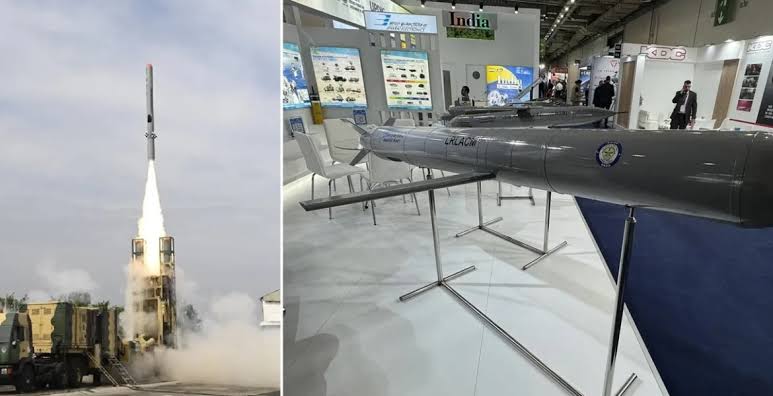Khalifa Erdogan in shock over Reports of India-Greece Advanced LR-LACM Missile Deal

The India-Greece missile deal remains unconfirmed but the reports have already placed Khalifa Erdogan in a state of Shock. It has drawn strong reactions from Turkish media. Turkey was merrily backing Pakistan forgetting that new India does not take such things lightly or forgets it easily. With India’s new initiative the strategic partnership between India and Greece will grow and rapidly change the defence dynamics in the region.
India’s Long-Range Land Attack Cruise Missile (LR-LACM), developed by the Defence Research and Development Organisation (DRDO), has tested range of up to 1,500 km and the ability to carry both conventional and nuclear warheads.
Both Turkey and Greece are NATO members but their relationship remains tense. With Greece acquiring a long-range, precision-strike capability from India it will be a potential game-changer in the regional balance of power. There is historical rivalry between Greece and Turkey because of dispute over the Aegean Sea, airspace violations, the Cyprus issue, and competition for energy resources.
Therefore potential India-Greece missile deal has triggered significant tension in Turkey, highlighting alliances and growing military cooperation between New Delhi and Athens especially with visit of Indian Air Force Chief to Greece.
During the high-profile visit to Athens, Air Chief Marshal AP Singh engaged in extensive discussions with his Greek counterpart, emphasising deepening operational cooperation, joint training, and sharing of combat experience—especially lessons from India’s recent “Operation Sindoor”….where Khalifa’ drones got swatted out of the sky like flies and even few Turkish trainers were killed when PAF bases were hit by India.
The LR-LACM being offered by India is a subsonic cruise missile, first successfully tested in November 2024, and represents a major leap in India’s indigenous missile technology. It is designed for precision strikes against high-value targets, including airbases, radar installations, and air defence systems, and features advanced terrain-hugging flight to evade radar detection.
The missile’s range and capabilities would allow Greece to target strategic military infrastructure deep inside Turkish territory, including airbases in Izmir and Çanakkale, as well as Turkey’s advanced S-400 air defence systems.
Turkish media has responded with alarm, framing the alleged missile offer as a direct threat to Turkey. Turkeys drones had proved ineffective against India’s barrage of advanced air defence missiles, which included locally made Akashteer System. Turkey’s reputation as a reliable and high-tech source for military hardware took a severe knock in the international market, and there is a huge market decline after the humiliating destruction of its supposedly advanced drones supplied days after the horrific Pahalgam terror attacks. The biggest shocker has been to Azerbaizan who have bought a large quantity of drones etc from Turkey.
Khalifa is worried that Greece could now “target Ankara” using Indian missiles. Turkish defence circles are particularly concerned that the LR-LACM, if integrated with Greece’s fleet of Rafale and F-16 Viper jets, would provide Athens with a powerful deterrent and the ability to proactively neutralize Turkish military assets in the event of conflict.
Supply of Indian missiles, highly reliable but cheaper than Western systems, also coincides with Greece’s broader military modernization program, which includes phasing out older Russian-made systems, acquiring new air defence technologies, and seeking to build a multi-layered “Achilles Shield” over the Aegean.




